🍪 Hello, we are the cookies!
We're here to make it easier for you to browse, and also to help DUO for a JOB understand how you interact with our site. Is this OK for you?
Continue without acceptingWe're here to make it easier for you to browse, and also to help DUO for a JOB understand how you interact with our site. Is this OK for you?
Continue without acceptingChange a young person’s future …and yours!
Are you over 50? Have you built up a long career and acquired a range of skills? So why not share them with a younger person who needs you?
It’s a fact: whatever their level of training, young people are over-exposed to unemployment, and young people of foreign origin (from outside the EU) even more so. And there are many barriers to this: lack of a network, unfamiliarity with the codes of the job market, discrimination, etc.
Being a volunteer-mentor with DUO FOR A JOB means committing yourself to support a young person to overcome these difficulties, and help him/her find their way!
After being trained by our association and supported by a member of our team, you first get to meet the person you will be helping. Every week for a maximum of 6 months, you work together to define an action plan, look for job offers and training courses. Together you can work on applications, prepare job interviews, update a CV, etc.
By sharing your experience, you give a young person a chance to build their own futur and, without even realising it, give new meaning to your own life.


To valorize and pass on your professional experience

A unique and enriching human experience

To join a network of active mentors

To contribute to society by volunteering

To develop new skills thanks to the program of continuing education

No previous coaching experience required!

Are over 50 years old

Are available 2 to 3 hours per week

Have professional experience on which you can capitalise
On the one hand, the mentors draw on all the knowledge and experience they have gained throughout their careers, as well as the training and advice they receive from DUO for a JOB, to help the mentees overcome the obstacles in their path. On the other hand, the mentees share with DUO for a JOB their life experiences, their projects, their ambitions and their doubts. Through their eyes, they give them a unique insight into «their reality».
It’s a real «win-win» situation that allows each mentor to remain active, feel useful, question their prejudices, value their skills and develop new ones. When asked:
84%
improved their coaching skills (active listening, empathy, etc.).
61%
found that the DUO experience added value to their professional life.
96%
feel more useful as an active member of society.
The key to the success of DUO for a JOB’s mentoring program lies in the implementation of a methodology and qualitative and effective support based on eight main steps.
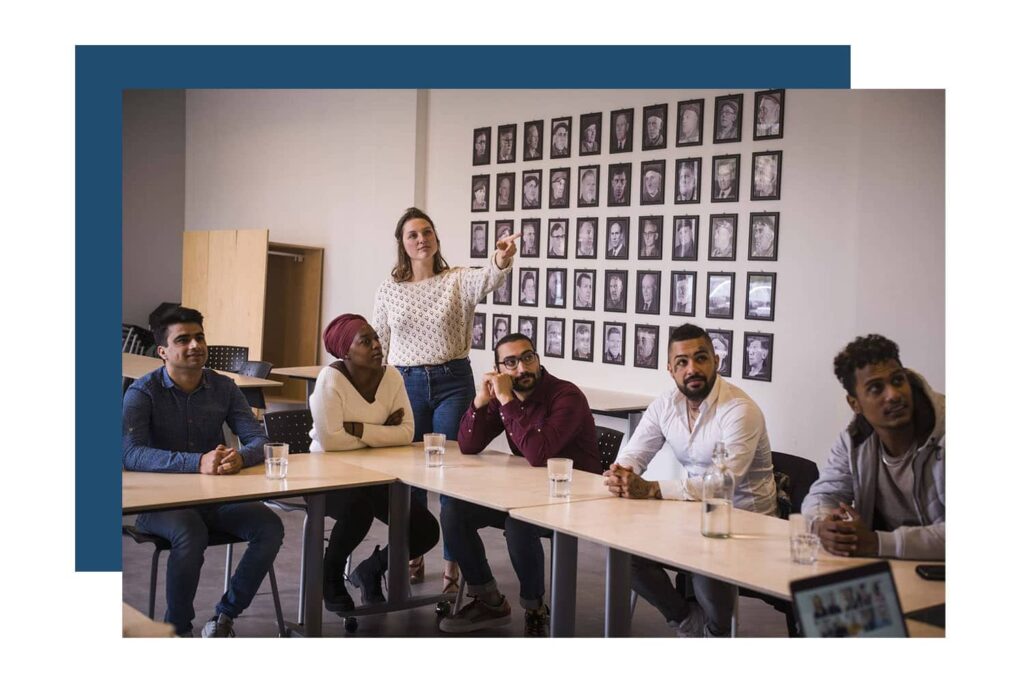
1. Information session
Information sessions are an opportunity to present the project, to clarify the roles of each and to answer any possible questions.
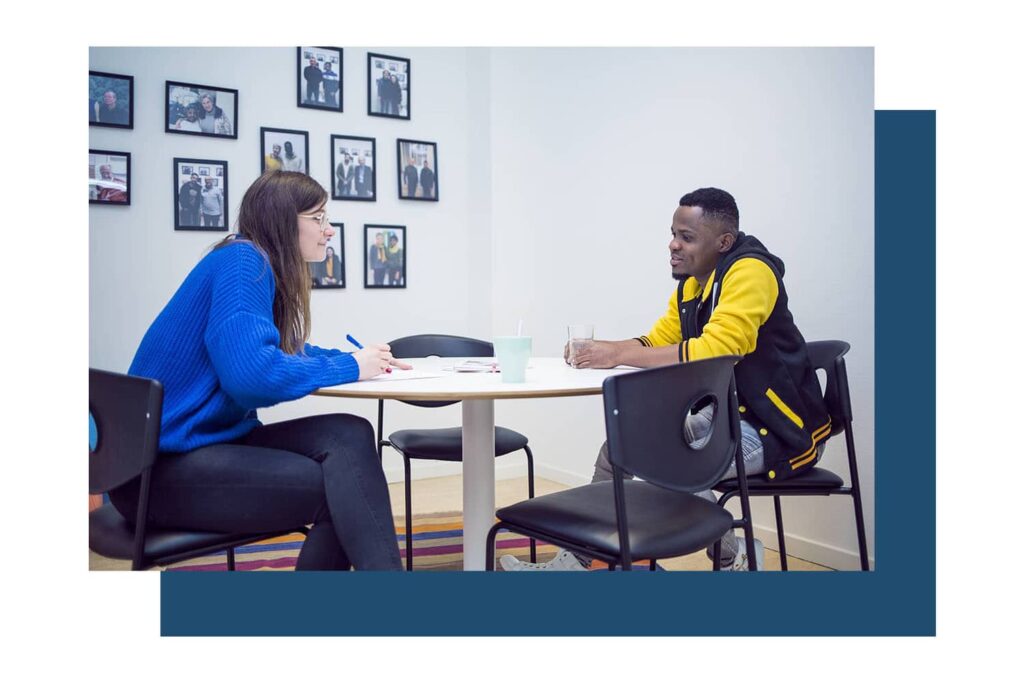
2. Individual interview
If interest in the project prevails, future mentors / mentees then meet an association coordinator in order to learn more about their experience and expectations.
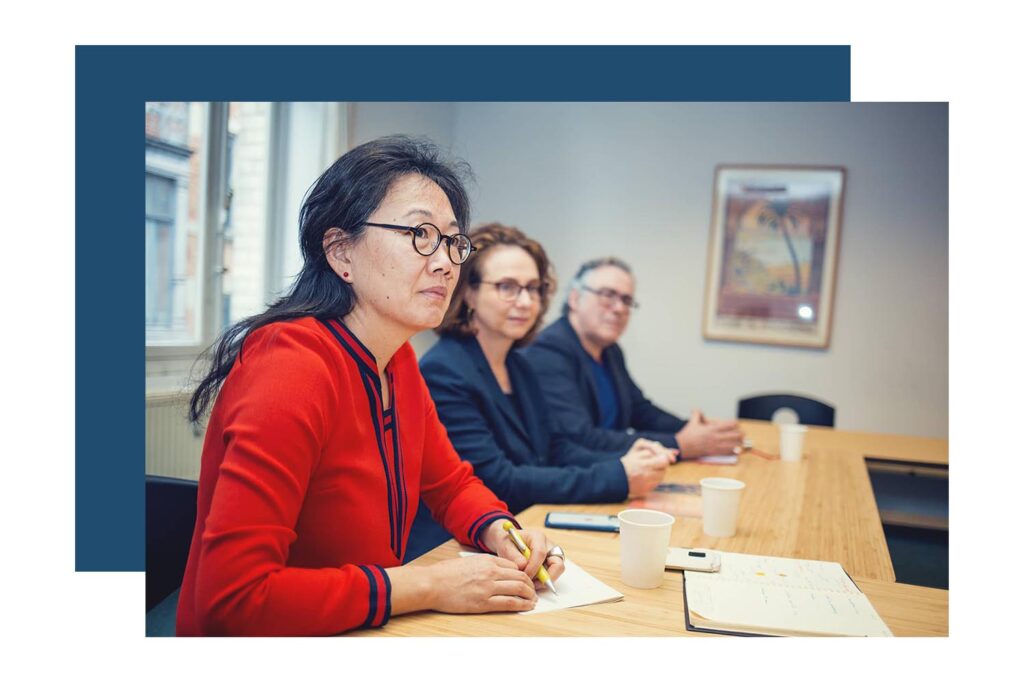
3. Mentor training
New mentors follow an initial training course to provide them with a basic tool kit on the do’s and don’ts of being a mentor.
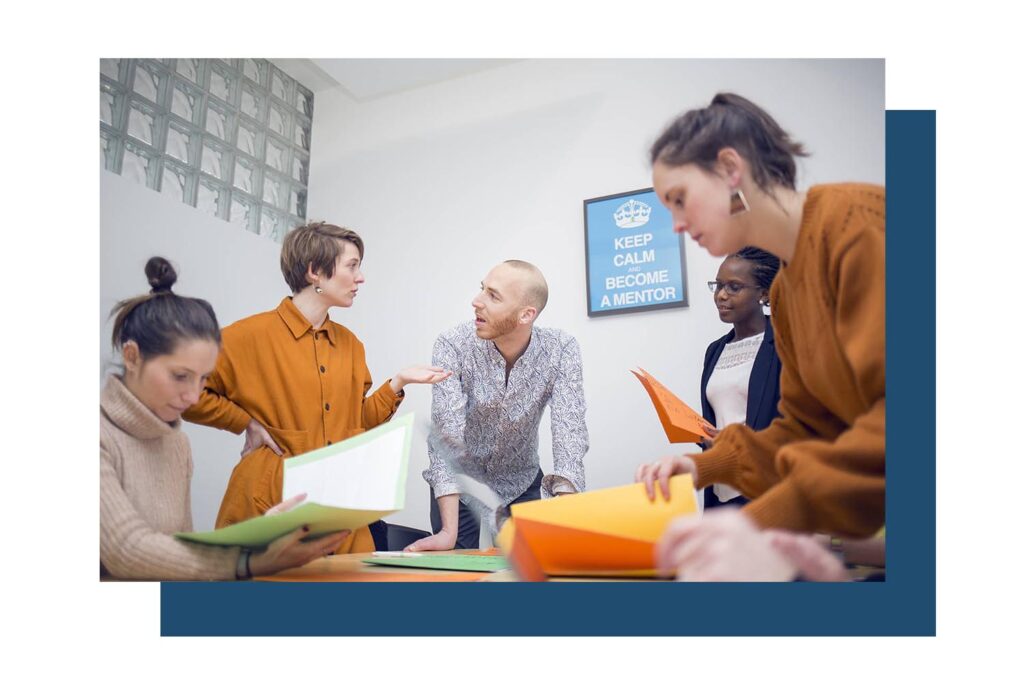
4. Matching
On the basis of different criteria (sector of activity, languages spoken, personality, availability, etc.), and taking into account all respective needs and skills, the coordinators constitute the new duos: this is the matching session.
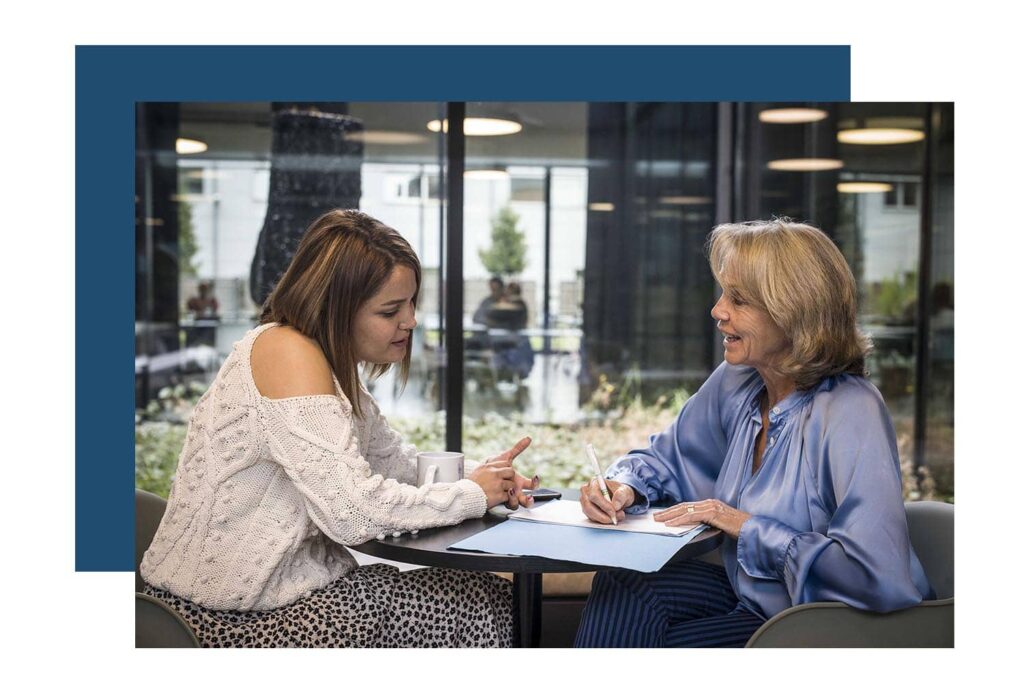
5. First meeting
The first meeting is an opportunity for everyone to get to know each other. After this meeting both the mentor and the mentee will decide independently whether they want to work together or not.

6. Signing of the Agreement and the Charter
If the mentee and the mentor confirm that they want to continue together, a second meeting is organised to sign the mentoring agreement that clarifies the framework and the commitments of each party, and “officially” marks the beginning of the support period.

7. Period of mentoring
The accompaniment period, during which the pairs will meet once a week, lasts a maximum of six months. Each duo is accompanied by a coordinator from the association.
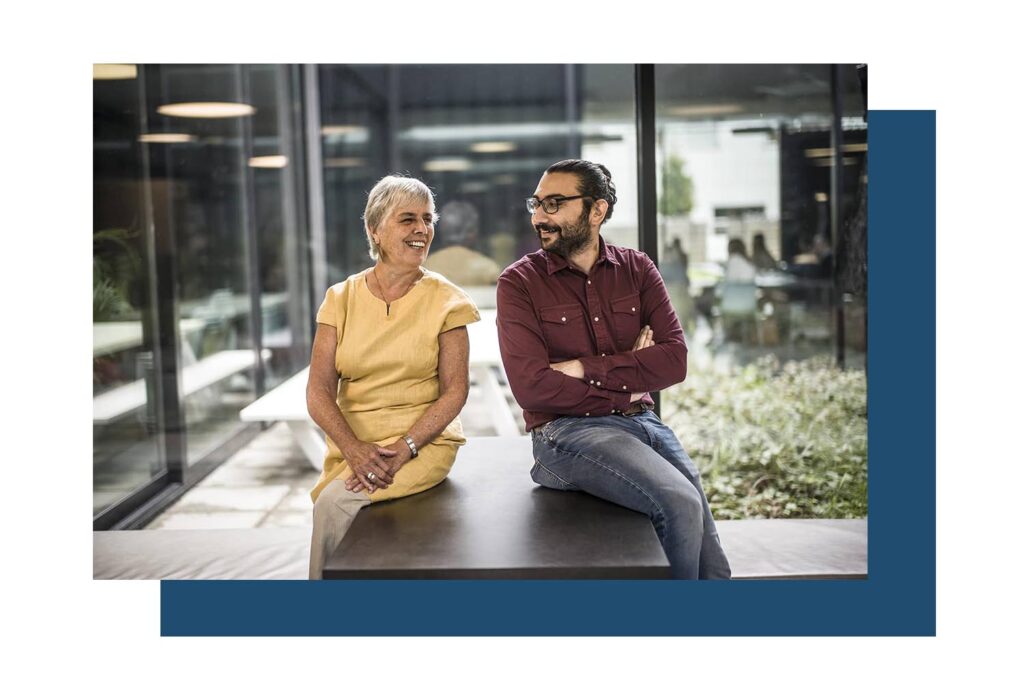
8. Evaluation
At the end of the 6-month period, the duo is invited to assess whether the programme has met their expectations and whether the objectives they set themselves have been achieved.
I find this project both promising and positive. I wanted to share my experience with others; that’s what I’m doing now with my mentee
Luc, 65 years old
It is so well thought out and organised that I wouldn’t stop anymore!
Chantal, 67 years old
With DUO for a JOB, I had the chance to pass on the best of a whole lifetime and was then surprised to realise that I was actually receiving much more in return, from both the association and my mentee
Jacques, 70 years old
Both exciting and rewarding, each DUO broadens the humanity’s horizons
Françoise, 62 years old
You’ll have to wait a few more years for 2 reasons: on the one hand, DUO has the will to respond to the particular problem of the lack of valuation of the skills and experience of 50+. On the other hand, we wish to guarantee the intergenerational character of the meeting. Since the young mentees who can benefit from the program are between 18 and 33 years old, and we consider a generation to last +/- 25 years, we decided to set the minimum age of the mentors at 50. 😉
Coaching skills are not necessary as the initial training of mentors at DUO gives them enough advice, tools and guidance to feel comfortable in their new role as mentor. A coordinator is appointed to support the mentor in the coaching process during the 6 months of the accompaniment. Meetings between the mentors (“intervision”) are also organised to encourage the sharing of experience and the progression of each person in their role as mentor.
There is no obligation to share your network with your mentee. The mentor’s role is primarily to raise awareness of the need to develop a network, but not necessarily to share his or her own address book. Moreover, it is not only about professional contacts. Neighbours, friends of friends, parents of schoolchildren, shopkeepers, sports partners, are all contacts that the young person can learn to use.
The time constraint is quite light as the minimum commitment is 2 hours per week on average for 6 months, which does not prevent you from going on holiday or devoting time to other activities! Moreover, our programme offers the possibility of meeting online, which allows you to save time on transport.


